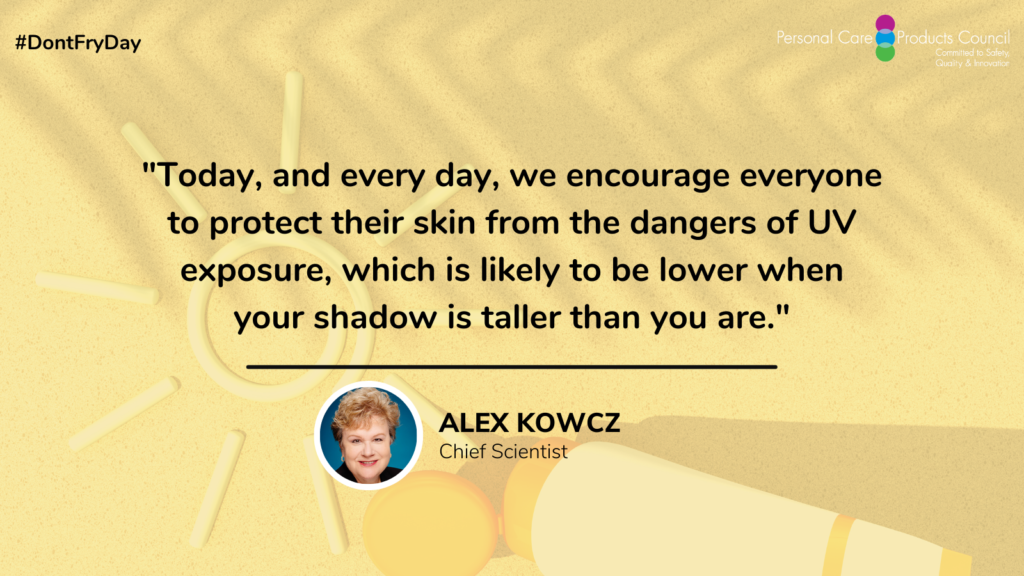National Don’t Fry Day: Enjoy Summer Safely
By Alex Kowcz
Chief Scientist
With summer vacation and warm weather upon us, we’re all eager for fun in the sun. National Don’t Fry Day serves as a reminder of the potential harm of overexposure to the sun’s ultraviolet (UV) rays. The dangers of UV rays – including premature skin aging and skin cancer – are clear and universally recognized. The Centers for Disease Control and Prevention (CDC), American Academy of Dermatology (AAD), Skin Cancer Foundation and health care professionals worldwide emphasize the important role of sunscreen use in the fight against skin cancer and premature skin aging.
On National Don’t Fry Day, and every day, we encourage everyone to protect their skin from the dangers of UV exposure. An easy way to gauge your UV exposure is by your shadow. UV exposure is likely to be lower when your shadow is taller than you are (i.e., in the early morning and late afternoon). If, on the other hand, your shadow is shorter than you (usually around midday), you are being exposed to higher levels of UV radiation and should seek shade, and protect your skin and eyes.

Skin cancer is a significant, yet largely preventable, public health concern. According to the American Cancer Society, more than five million Americans are diagnosed with skin cancer each year – more than all other types of cancer combined. One in five Americans will develop skin cancer in their lifetime, and 20 Americans die from melanoma – the deadliest form of skin cancer – every day, according to AAD. PCPC and our member companies share a common goal to help consumers make informed decisions about using sunscreen as part of an overall safe-sun regimen. Our industry is proud to offer innovative sunscreen products that help protect individuals and families from the harmful effects of the sun.
Having an array of safe and effective sunscreen active ingredients allows manufacturers to continue to develop products that meet the differing needs of individuals and their families. Ensuring consumers have access to these products is critical in the fight against skin cancer and premature aging, as well as an important contribution to the U.S. Food and Drug Administration’s (FDA) public health mission.
Remember, ‘Don’t Fry’ while enjoying your summer! We hope using sunscreens becomes as much of a habit as using your seat belt.
